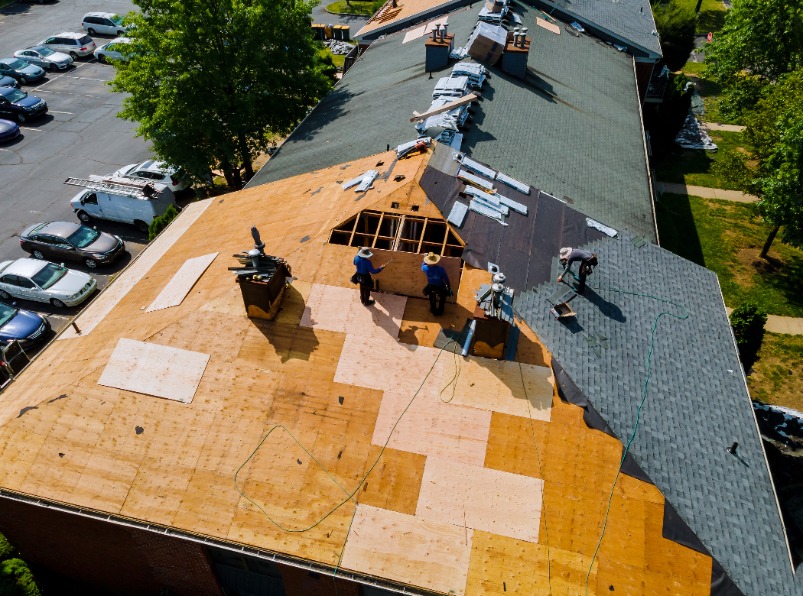It is important to inspect your roof regularly for signs of wear and damage, especially if you experience extreme weather conditions such as hurricanes or hail. Neglecting these issues can lead to costly repairs that should have been caught earlier, so it is important to know the difference between a minor repair and serious re-roofing. This article provides a guide on how to assess whether you need basic repairs or extensive re-roofing work done in order to prevent any further damage.
Factors to Consider if You Need a Re-Roof or Just a Repair
The Age of Your Current Roof
One key factor to consider when deciding between a re-roof and a repair is the age of your current roof. Roofs need to be replaced every 20 years or so depending on the type of material and environmental factors influencing it. Older roofs may have more damage than they appear to have on the surface and replacing it may be necessary to avoid more costly problems in the future.

Roof Repair or Re-Roofing? Make the right choice!
Additionally, if your roof’s warranty has expired, even minor repairs may no longer be covered by any manufacturer’s warranty. Understanding how old your roof is will help you make an informed decision on whether you just need a repair or a full re-roof.
Overall Condition Of Your Roof
When it comes to determining whether you need a complete roof replacement or just a repair, the most important factor to consider is the overall condition of your roof. You may want to inspect all the aspects of your rooftop, from the shingles to flashing and underlayment. If there is severe damage on these components, a re-roof could be your best option. Even if 90% of your roof is still in perfect condition, having one area with severe damage can compromise your home’s security and integrity due to water and moisture ingress into that area of the house. A thorough inspection of your roof should help you better decide if you should invest in repairs or replacements.
Missing Shingles
One indicator of a problem that homeowners should be aware of is missing shingles. This could require the entire roof or just part of it to need re-roofing or repair depending on the extent. If you notice missing shingles, it might be best to contact a reliable roofer for an inspection before equipment damage increases in intensity. An experienced professional will advise you if you can make only slight repairs or if you need to re-roof your home depending on the overall condition and circumstances of the roof.
Exposure to the Elements
If you have a worn-out or damaged roof, it is important to take into account the amount of exposure that it might be subjected to when determining whether to repair or re-roof. The elements, such as wind, rain, and sun can cause premature destruction and wear and tear; so if your roof is in an exposed location with heavy weather patterns then consideration should definitely be taken. With regular maintenance and good construction quality, your roof should last you a long time regardless of its exposure to the elements; however, if replacement is necessary, materials such as asphalt shingles can stand up to most weather conditions while providing solid aesthetic value too.
Type of Climate You Live In
It is important to consider the type of climate you live in when deciding whether your roof needs a repair or a total replacement. If your area experiences frequent heavy rains and winds, your roof may be damaged more quickly than if you lived in a drier region. Similarly, if you experience harsh winters with freezing temperatures and snow, your roof could suffer additional wear and tear beyond what it might receive in milder areas. Those who live in hot climates with intense summer heat should also take caution; excessive heat can cause shingles to age more quickly. Ultimately, understanding the conditions of your climate will help you determine whether a full re-roof or just a repair is necessary for your home.
Replacing your roof is a huge investment. If your roof is not too old and only has a few damaged areas, you might be able to get away with just repairing those sections. However, if significant portions of your roof are showing wear and tear, it may be time for re-roofing. Ultimately, the decision comes down to cost vs. benefits. It is important to consult with a professional roofing contractor who can assess the condition of your roof and offer expert advice.
